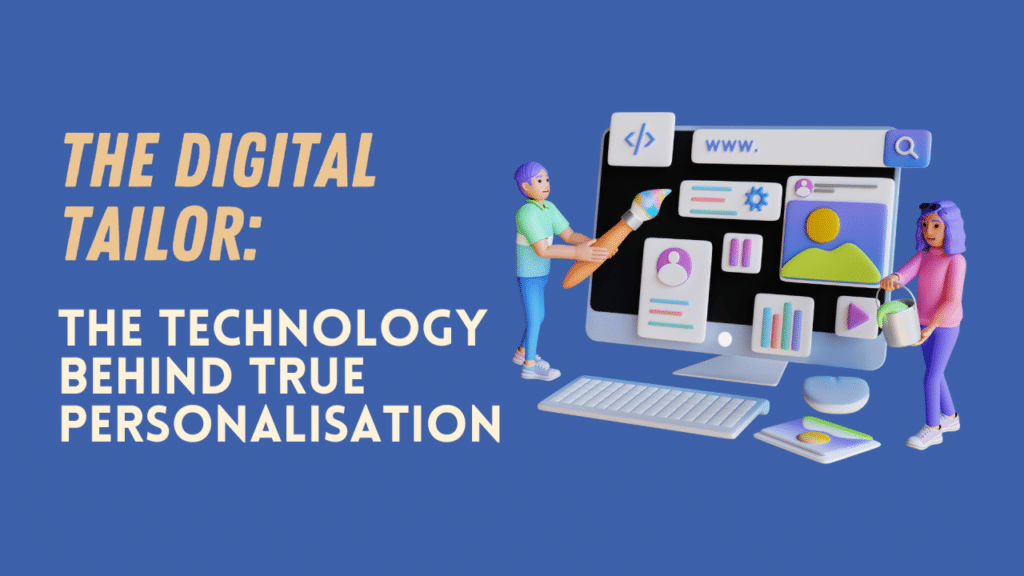The technology behind marketing personalization

In an era where the consumer's attention span is shorter than ever, and the competition for that attention is fierce, the need for personalized marketing strategies has never been more acute. This post delves into the intricate technology that powers personalization in the marketing industry, offering a new perspective on how businesses can meaningfully engage with their audiences.
Personalized marketing not only benefits the consumer by providing them with more relevant content but also offers businesses improved engagement rates, higher customer satisfaction, and increased revenue opportunities. Understanding the technology behind this personalization is pivotal for companies looking to remain competitive and relevant in today's digital landscape.
The Foundation of Personalization
The journey to personalized marketing begins with data collection. Advanced software platforms harness the power of Big Data analytics to gather insights from a variety of sources including browsing habits, purchase history, and even social media interactions.
Once collected, this data is then analyzed and processed by sophisticated algorithms that can identify patterns, preferences, and potential customer needs. This process allows businesses to craft personalized messages and offers that are more likely to resonate with each individual consumer.
Artificial Intelligence (AI) plays a crucial role in this stage, using machine learning models to continuously improve and refine how customer data is interpreted and utilized for personalization purposes.
The use of Personal Identifiable Information (PII) is meticulously managed to ensure privacy and compliance with regulations such as the GDPR, thus safeguarding consumer trust while enabling personalized marketing.
Customization at Scale
Technology such as Customer Relationship Management (CRM) systems and marketing automation tools are instrumental in delivering personalized experience at scale. They allow businesses to segment their audience into distinct groups with similar interests and behaviors.
Dynamic content creation tools further refine the personalization process, enabling the automatic adjustment of messaging based on the user's current context or stage in the customer journey.
Personalization engines leverage predictive analytics to forecast future customer behaviors and preferences, allowing businesses to proactively tailor their marketing efforts.
Engagement through Personalized Content
Content Management Systems (CMS) have evolved to support the creation and delivery of personalized content. These platforms can dynamically serve different content variations to users based on their profile data.
Email marketing software provides powerful capabilities for personalizing communications at an individual level. Through segmentation and triggers, businesses can send highly relevant emails based on specific user actions or milestones.
Social media platforms offer sophisticated targeting options that enable advertisers to tailor their messages to very specific audience segments, enhancing engagement rates through personalized ads.
Video marketing has also embraced personalization, with platforms offering the ability to insert personalized elements into video content, making the viewing experience uniquely tailored to each viewer.
Finally, personalization is increasingly prevalent in ecommerce, with recommendations engines suggesting products based on the user’s past behavior, significantly improving the shopping experience.
Privacy and Personalization
Amid growing concerns over privacy, the technology powering personalized marketing constantly adapts to ensure consumer data is handled securely and ethically. Privacy-by-design principles are integral to modern marketing tools, embedding data protection into the technology itself.
Transparency in data collection and use is paramount, with businesses providing clear communication to consumers about how their data drives personalized experiences.
Opt-in and consent mechanisms give control back to the consumer, allowing them to dictate the extent of the personalization they're comfortable with.
Despite these safeguards, businesses must remain vigilant and responsive to evolving data protection laws to maintain consumer trust while delivering personalized marketing experiences.
Challenges and Future Directions
While the advantages of personalized marketing are numerous, businesses face challenges in balancing personalization with privacy, managing the complexity of data integration, and ensuring the accuracy of the data-driven insights.
Emerging technologies like blockchain and decentralized data networks promise new ways to manage consumer data transparently and securely, potentially revolutionizing personalized marketing.
Continued advancements in AI and machine learning will further refine the accuracy and effectiveness of personalization algorithms, offering even more nuanced consumer insights.
As voice search and Internet of Things (IoT) devices become more prevalent, they will open new avenues for personalized marketing, requiring innovative approaches to engage consumers through these platforms.
The technology behind personalized marketing is complex, multifaceted, and rapidly evolving, driven by the imperative to deliver more relevant, engaging, and effective marketing experiences. As we look to the future, the integration of emerging technologies and adherence to ethical data practices will be key in shaping the next generation of personalized marketing strategies. For businesses striving to stay at the forefront, understanding and leveraging these technological advancements in personalization will be crucial to achieving success in the hyper-competitive digital marketplace.

Related